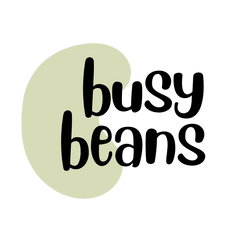Introduction:
In recent years, the lectin-free diet has gained popularity as a potential solution for various health issues and weight management. This blog will delve into the concept of a lectin-free diet, providing an overview of what it entails, its potential benefits, and the challenges one may encounter while following it. So, let's dive in!
Understanding Lectins:
Before discussing the diet itself, it's crucial to understand what lectins are. Lectins are a type of protein present in many plant-based foods, particularly grains, beans, and nightshade vegetables. They are naturally occurring substances that plants produce as a defense mechanism against pests or predators. While lectins have certain health benefits, some argue that consuming high amounts of specific types can have adverse effects on the human body.
What is a Lectin-Free Diet?
A lectin-free diet involves significantly reducing or eliminating foods high in lectins from one's eating routine. This includes avoiding or minimizing the consumption of grains, legumes, nightshade vegetables (such as tomatoes, potatoes, and peppers), and certain fruits.
Potential Benefits of a Lectin-Free Diet:
- Reduced Inflammation: Advocates of the lectin-free diet claim that it can help alleviate chronic inflammation, which is associated with various health conditions such as arthritis, autoimmune diseases, and digestive issues.
- Weight Management: By eliminating lectin-rich foods, some individuals report improved weight management, reduced bloating, and increased energy levels.
- Enhanced Gut Health: As high lectin intake may cause damage to the gut lining, reducing lectin consumption may support a healthier gut, digestion, and nutrient absorption.
Challenges of Following a Lectin-Free Diet:
While proponents of the lectin-free diet highlight its potential benefits, it's imperative to acknowledge the challenges one may face:
- Nutritional Imbalance: Completely eliminating lectin-rich foods may result in a reduced intake of essential nutrients, like fiber, vitamins, and minerals. Proper meal planning and consultation with a healthcare professional or nutritionist is vital to ensure a balanced diet.
- Limited Food Choices: The lectin-free diet restricts several commonly consumed foods, making it challenging for some to sustain. Food alternatives and creative recipes can help maintain variety in the diet.
- Lack of Scientific Evidence: Much of the evidence supporting the lectin-free diet is anecdotal, and larger-scale scientific studies are needed to validate its touted benefits. It's essential to approach such diets with a critical mindset and consider personalized health goals.
Conclusion:
The lectin-free diet is a hot topic in the realm of wellness and nutrition. While it may provide certain benefits, it's crucial to approach it with caution and consider individual needs and health objectives. Consulting a healthcare professional or registered dietitian can help determine the most suitable and balanced approach to one's diet. Remember, no single dietary approach works universally, and it is essential to prioritize long-term sustainable habits for overall health and well-being.
Discover Our Lectin-Free Products:
Looking to explore lectin-free products? Click here to visit our dedicated lectin-free products page. Discover a range of options carefully curated to support your lectin-free diet journey.
